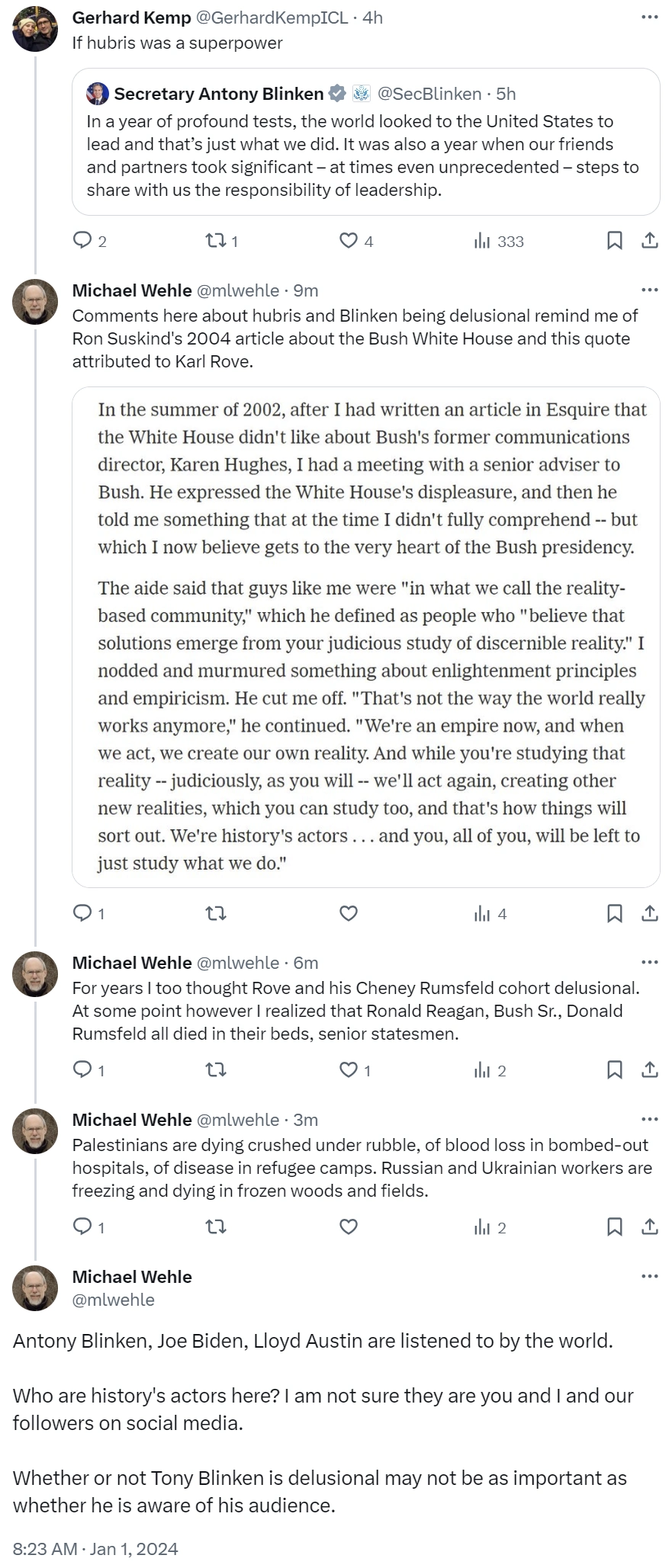Jean Asselborn,  :
:
Wir leben in einer komischen Zeit: In Amerika wird über eine mögliche Diktatur gesprochen, während in Russland jemand an der Macht ist, der Stalin imitieren will. Wir hier in Europa sind in seinen Augen alle Nazis, nicht nur die Ukrainer, sondern wir alle. In dieser Zeit kann es nur eine Parole in Europa geben: dass wir unsere Wertegemeinschaft verteidigen und zusammenstehen müssen. Und uns nicht auseinanderziehen lassen, wie das jetzt die Populisten versuchen zu tun.
Ω Ω Ω
Als ich 2004 Außenminister wurde, wehte ein anderer Wind in Europa. Natürlich gab es auch Probleme. Aber es war ein Wind der Hoffnung. In dieser Zeit haben wir mit dem Verfassungsvertrag versucht, Europa näher zusammenzubringen. Nach dem Nein in Frankreich und den Niederlanden haben wir gesagt: Wir lassen uns nicht gehen. 2007 haben wir den Grundstein gelegt für den Lissabon-Vertrag. Und wir hatten die Hoffnung: Es geht doch. Das ist etwas, das ich heute wirklich vermisse. Heute hoffen wir, dass bleibt, was wir erkämpft haben. Aber wir haben Angst vor dem, was kommt.
Was ist das Schlimmste, was kommen könnte?
Wenn wir die Werte der Rechtsstaatlichkeit und der Menschenrechte nicht mehr beachten, dann hat dieses Europa auch nicht mehr den Zement, der uns zusammenkittet. Dieses Projekt funktioniert nur, weil es auf gemeinsamen Werten aufgebaut ist. Dabei dürfen wir das Ziel eines föderalen Europas nie aus dem Blick verlieren. Das Europa der zweiten Hälfte dieses Jahrhunderts muss eines sein, in dem wir eine europäische Regierung haben, ein Parlament und ein Gericht.
Momentan geht es aber in die andere Richtung.
Momentan hat das keine Aussicht auf Erfolg. Trotzdem: Wir dürfen das große Ziel nicht aus den Augen verlieren.












